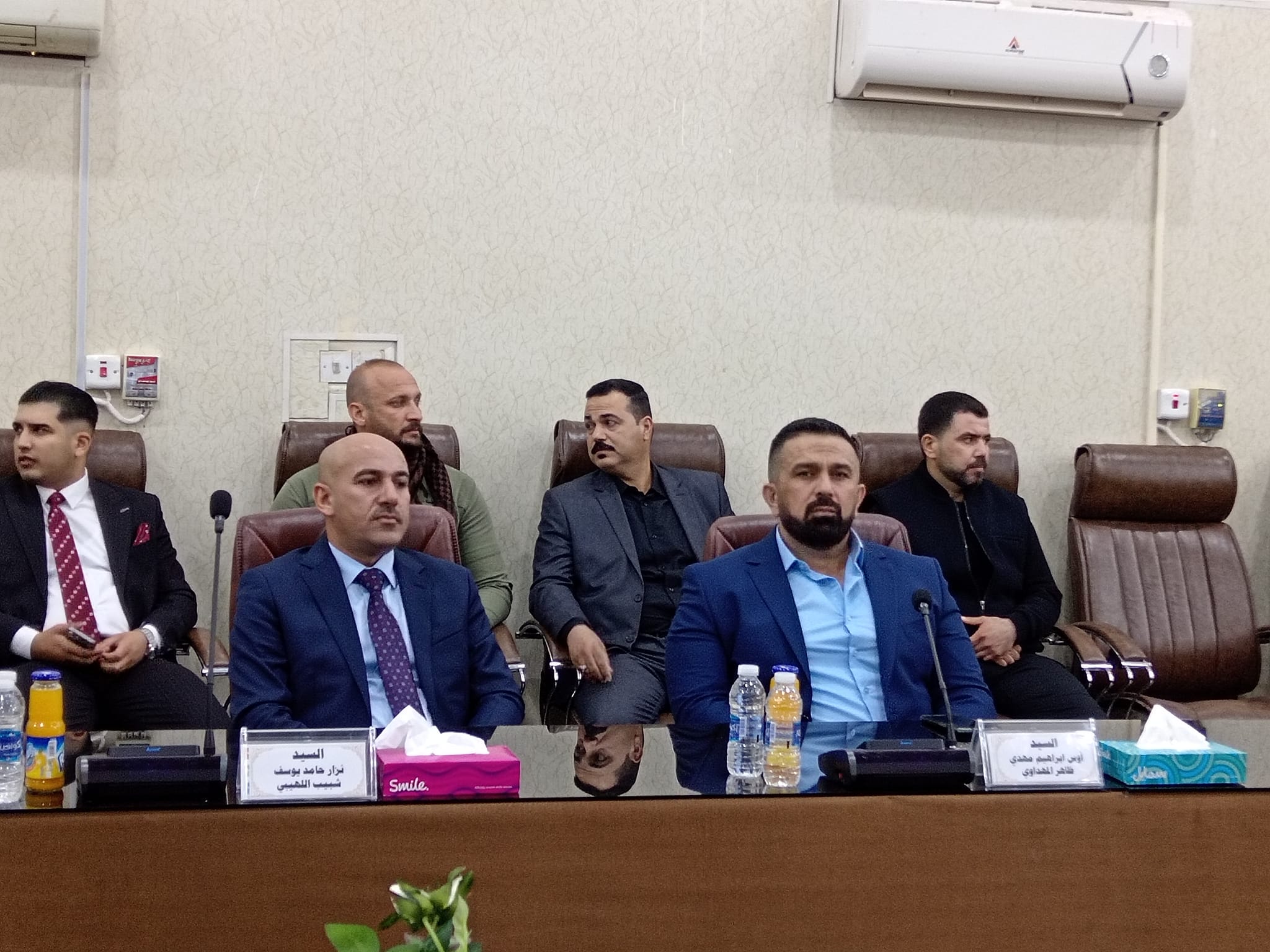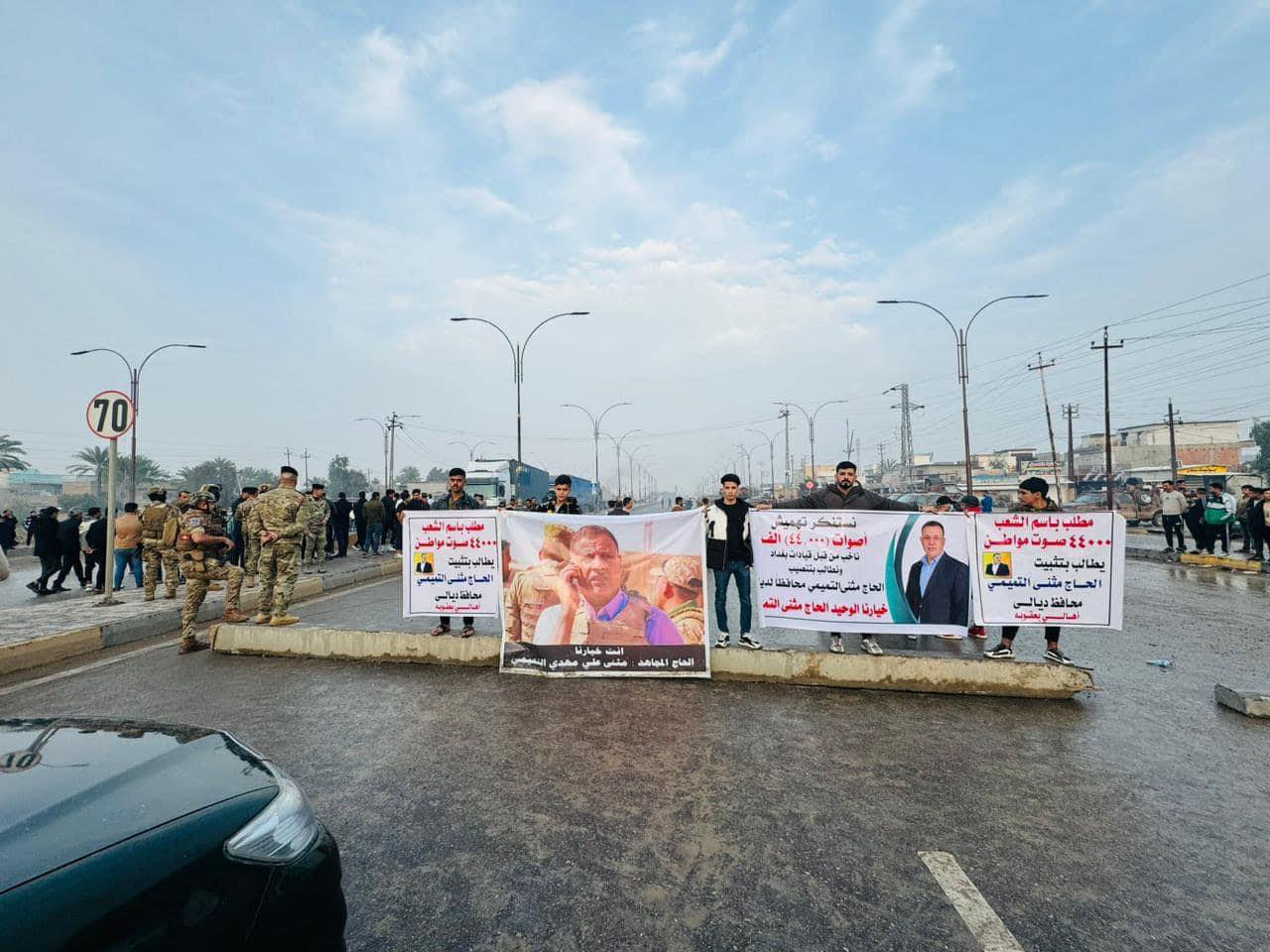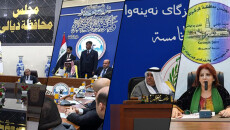The winning blocs in the Diyala Provincial Council failed for the fourth time to form the local government due to continuing disagreements over the distribution of positions, including the positions of governor and head of the provincial council, during their last meeting, which was held in the capital, Baghdad and ended without result.
According to electoral eligibility and bloc agreements, the position of Diyala Governor was decided for the Shiite parties and the position of Speaker of the Council was decided for the Sunnis, but the two parties are facing internal disagreements over identifying the candidates, which led to a delay in forming the local government.
The last meeting was held on March 1 at the Al-Rashid Hotel in Baghdad and was attended by 10 members out of a total of 15 members of the Diyala Provincial Council.
Aws Ibrahim, a member of Diyala provincial council from the Patriotic Union of Kurdistan PUK bloc, told KirkukNow, “The meeting lasted eight hours. Discussions revolved around electing the council president and his deputy at first, but the Sunni blocs, specifically the Progress Alliance headed by Muhammad al-Halbousi and the Sovereignty Alliance headed by Khamis al-Khanjar, did not reach an agreement because both of them were demanding the position of President of the Council.”
The two Sunni alliances each have three seats in the council.
According to the agreement of the winning blocs, the position of governor and deputy head of the council is given to the Shiites, while the head of the council and deputy governor are given to the Sunnis.
Aws Ibrahim said, “I withdrew from the session because they wanted not to grant any position to the Kurds and to distribute the positions among themselves.”
Six Sunni members, three Shiites and a member of the PUK bloc participated in the Baghdad meeting.
I withdrew from the session because they wanted not to grant any position to the Kurds
A source familiar with the details of the Baghdad meeting indicated that the meeting witnessed “altercations between members of the Sunni blocs.”
The meeting was held in Baghdad, sparking a wave of protests and criticism from a section of politicians and observers of the situation in Diyala or who play a role in the political process.
Ahmed Al-Musawi, a member of the Iraqi Parliament from the Asaib Ahl al-Haq bloc and a resident of Diyala, said, “Let the people of Diyala hear and be aware that holding the meeting outside Diyala Governorate is a disdain and disregard for the governorate, its people, its forces, and its security services.”
Al-Moussawi wrote on his Facebook page, “How will this government that is to be formed work in the midst of this unstable atmosphere and the great rejection that exists for a person who has become part of the instability, disagreements, and problems,” without mentioning the name of that person.
The 15 members of the Diyala Council were divided into two teams: The Team of Eight and the Team of Seven. The two teams include a mixture of Shiite and Sunni parties seeking to secure the largest number of senior positions in the local government in their favor.
Diyala Provincial Council consists of 15 seats, four of which are allocated to women. Diyala Governorate is home to 1.6 million people, 90,000 of whom live in the center of the Khanaqin dominantly Kurdish district, according to estimates by the Central Bureau of Statistics for 2019.

It is clear that the dispute within the Shiite House is that Muthanna Al-Tamimi, head of the Diyalatna National Alliance, which won four seats in the council and has the highest number of votes with 42,812 votes, insists on assuming the position of governor.
During the last period, supporters of Muthanna al-Tamimi and members of the Bani Tamim clan, one of the largest clans in Diyala, organized demonstrations in various areas of the governorate in which they demanded the appointment of Muthanna al-Tamimi as governor of Diyala.
This comes while some parties within the coordination framework, including the Badr Organization headed by Hadi Al-Amiri and the State of Law headed by Nouri Al-Maliki, are seeking for the position to be held by one of their candidates.
Derya Khairallah, a member of the Provincial Council for the Iraqi Al-Asas (Base) Alliance, posted on her Facebook page, “Next time, if you want to hold a meeting, do not send the invitation at two o’clock and ask us to come at four, because we do not have an Aladdin’s rug,” criticizing the elderly president of the council who invited council members to attend Baghdad meeting only two hours before the session.
Regarding the Baghdad meeting, Ibrahim said, “Its purpose was to give a kind of freedom to the members of the Council, because some members of the Council may be exposed to pressure if the session is held in Diyala.”
All ten Council members who attended the meeting agreed to elect Muthanna Al-Tamimi
The highest legislative and supervisory authority within the boundaries of the governorate administration shall be with the Council, which after electing a president and a deputy, has the right to issue internal rules and instructions for managing the affairs of the governorate, formulate the general policy, and discuss and approve the local budget and project plans.
In addition to electing the governor and his two deputies, the mayors of districts and sub-districts, the council can decide the candidates for the positions of general directors and other senior positions before the Council of Ministers votes on them, and the council can also, based on several terms and conditions, withdraw confidence from senior administrative positions in Kirkuk.
The Iraqi provincial councils were dissolved at the end of 2019 under the second amendment to the provincial council elections law, which was one of the demands of Tishreen (October 2019) protesters in Baghdad and several other provinces against corruption, demonstrations heavily targeted, left hundreds of civilians killed and thousands injured.
Former Diyala Governor and current member of the Provincial Council, Muthanna Al-Tamimi, insists on assuming the position of governor. On March 14, he said in an audio message posted on social media that “the crisis in forming the local government in Diyala Governorate has passed through several stages, and good progress has been made during the last period.”
Regarding the Baghdad meeting, he says, “The discussions were not fruitful and did not achieve results, but because of the differences between the Sovereignty and Progress blocs regarding the position of Council President and Deputy Governor, some problems arose,” he added.
“All ten Council members who attended the meeting agreed to elect Muthanna Al-Tamimi.”
According to information obtained by the KirkukNow from members of the Council, the State of Law nominated a figure from the Bani Tamim clan called Waddah Al-Tamimi for the position of governor in order to overcome the crisis, but it is awaiting the approval of Hadi Al-Amiri, who plays a role in the case.
However, Muthana Al-Tamimi said in his audio message in response to the State of Law effort, “I promise the voters who voted for me that I will not give up my votes, and any party that refuses to do so, can work as an opposition.”
Ali Al-Hajiya, civil activist and observer of the elections and the process of forming the local government in Diyala, said, “At the same time, there are internal disputes between the Sunni forces and within the Shiite house, and this is what has maintained the state of political deadlock.”
Although Ibrahim indicated that the ideal solution is for the council members to exercise their duties as observers of the government’s performance and not wait for the formation of the local government, council member Nafi’ al-Jubouri says, “It is better for the council to dissolve itself if it fails to form the government.”
The faltering formation of the Diyala administration comes more than 40 days after the first session of the Council, which was held on February 5, while the Provincial Council Elections Law stipulates that the governor and his two deputies must be elected by the Council within 30 days of the first session.






